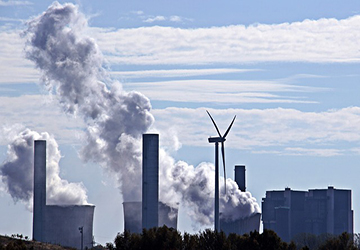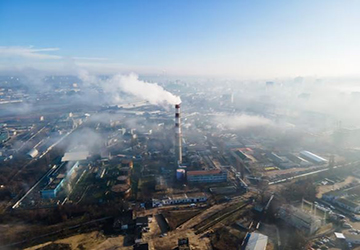Top 3 Environmental Protection Laws
The environment and its natural resources are essential for the survival of more or less all species, including humans. But unfortunately, many people and big organizations only care about themselves to seize maximum profits despite knowing they are damaging the environment.
Luckily, we have some environmental laws to curb this process. These laws are made to protect the Earth's natural resources, such as air, freshwater, land, and soil which are critical for the survival of humans. It is also essential to the cardinal that the government can punish those not following the rules.
This article will discuss prominent environmental protection laws and examine their impact on the planet.

The Clean Air Act
The Clean Air Act was made in 1970 in the United States. It is one of the most prominent environmental laws globally, whose primary objective is to control air pollution and ensure clean, breathable air. This law has given the EPA (environmental protection agency) high power to set national air quality standards. It also involves setting the same standards for industrial emissions and vehicle pollution as these two are the worst type of pollution which, sometimes, is irreversible.
The people who work for this Act have shown tremendous performance. They have created a transformative impact on air quality and public health. Their hard work has shown reductions in significant pollutants such as harmful chemicals nitrogen oxide and sulfur oxide. As a result, there is a significant decrease in respiratory illnesses along with other diseases caused by the contaminants. Moreover, the visibility and ecosystems are showing signs of improvement.
Additionally, there is an increase in technological advancements and innovations toward clean energy resources and industrial processes.
However, this Act could not do justice to greenhouse gas emissions. More efforts are needed to strengthen the enforcement of this law and expand its scope. Hopefully, it will lead to more clean air in no time.
Endangered Species Act
Working for endangered species started in 1971 in the United States. The law was created to protect threatened species on the verge of disappearing from Earth. ESA aims to prevent this extinction. They do this by identifying and listing them as endangered species and implementing measures to recover and conserve their habitats. It will help to increase their population as well.
This law helps restore the population and get legal protection from the government. Moreover, they can also ban certain activities which may harm the endangered species. Along with that, the people also promote specific ecosystems that help to thrive all types of endangered species.
However, this organization routinely faces many criticisms. Many industries and landowners who must clear and pollute specific biodiversity condemn what ESA is doing. For this, the ESA has also made a law to evaluate and adapt to emerging threats and check the impact of climate change on all species.
Clean Water Act
Who doesn't need clean water? Everybody does, including animals and birds who live in different biomes. This Act was passed in 1972 to protect and restore the nation's moisture by reducing pollution. It includes pollution in rivers, lakes, wetlands, and coastal areas.
The Clean water act specifically targets industrial facilities and sewage treatment plants. Generally, these two are the primary culprits in all types of pollution, which harms nearby areas and makes them useless for a long time. For this, they have established specific standards for wastewater treatment, which they usually dump into nearby water resources. This runoff affects urban areas as well as damages agricultural land too.
This Act is important because we can see significant differences and improvements in water quality. Since they focus on preventing water pollution, aquatic life is becoming better. Moreover, industries now do not dump contaminants like heavy metals and harmful chemicals into waterways but treat them appropriately before disposal.
The scientists at the Clean Water Act are also working to restore wetlands. They are essential as many species thrive there. Also, they control floods and filter water, removing pollutants. For this, the government is taking strict actions against violating clean water laws.
This Act serves as a model for all nations. Everyone can save water and protect water resources by working on the given framework and following the principles. Remember, sustainable supply is the only way to survive in the coming days.

Benefits of environmental laws
All environmental policies are designed to create a foundation for improvements in every aspect of life. These policies highlight the importance of natural resources, which humans take for granted.
Here are some of the other classic advantages of environmental laws.
1. Helps all individuals to stay and work within the laws.
2. Reduce incidents that result in liabilities.
3. Conserve raw materials.
4. Save energy by fossil fuels.
5. Monitor and improve environmental impacts.
6. Working on punishments like fines and community service or jail time in severe cases.
7. Reduce pollution.
8. Help all biodiversities.
9. Restore ecological balance.
Challenges
There are multiple challenges these organizations face. Many individuals are carefree and hence pollute as much as they want. It goes for some industries, such as pharmaceuticals and chemicals, which significantly threaten water quality and require urgent regulations.
Furthermore, the aging infrastructure and insufficient funds become an obstacle too.
To sum up
Overall, these top 3 environmental protection laws have become the baseline for many organizations that want to stand on the frontline and work for the betterment of the planet. As an individual, even if you cannot join, you can abide by their rules and work towards progressive results.
The planet Earth has given us much, and now it's time to give positive reinforcement back. It can be done by saving resources such as land, water, and air, through which everything thrives.
Remember that one man can do what many cannot do. So let's join hands, become responsible humans, and understand how these laws protect the environment, meaning they are made for our betterment.
You can create better laws if deemed necessary as an individual or by working for these organizations. so see what is essential and go for it.











